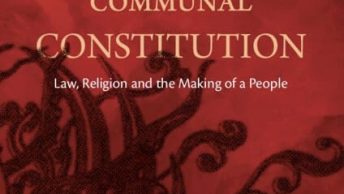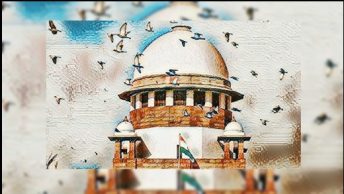[Ed Note: As part of our New Scholarship Section, we have been inviting discussants to respond to specific articles. This is part of a series of posts discussing the public law themed articles featured in the recently released Volume 42 Issue 2 of the Statute Law Review. You can access all the posts in this discussion here. In this piece, Dipika Jain, introduces the arguments she makes in her paper titled “Law-Making by and for the People: A Case for Pre-legislative Processes in India” that has been published in the Volume 42 Issue 2 of Statute Law Review 2020.]
In the policy piece titled, Law-Making by and for the People: A Case for Pre-legislative Processes in India, the author discusses the need for a mandatory pre-legislative consultation and deliberation process. The author argues that such a process is necessary in order to ensure legitimacy in the law, and adequately respond to the needs of the individuals most likely to be impacted by the law.
Part I of this article begins by establishing the value of a consultative process in legislative procedure. The author argues that this pre-legislative procedure, in which law- and policy-makers hold consultations with the affected stakeholders before a bill is drafted, increases the efficacy and the legitimacy of the law or policy, thus avoiding opposition from the communities that the law was intended to benefit. Legitimacy is the “pre-eminent theoretical explanation,” for requiring a “process of community consultation, feedback, cross-sectoral negotiation, and consensus.” The author argues that although laws in a democracy traditionally derive their legitimacy from the presumed will of the people, a truly democratic legislative process “should include a more proximal reflection of community needs than merely their ability to elect an official to address their concerns”.
A robust consultation process would ensure that the rights of the people most affected by the law are not adversely affected, and would further ensure transparency and accountability in decision-making. It would also create a concentrated nexus between representatives and the represented, introduce a collaborative process of incorporating social realities into legislative processes, and build firm foundations for an informed government that is responsive to contemporary legal and social issues. The author acknowledges common critiques to a pre-legislative process: that it is time-consuming and expensive. Nevertheless, a pre-legislative consultative processes leads to laws that better reflect what the public wants, take into account the needs of marginalised groups, and avoid the short- and long-term costs of poorly crafted laws and policies.
Part II of this article describes the current pre-legislative process in India. Although the Ministry of Law and Justice issued a circular in 2014 stating that draft legislations must be placed in the public domain for comments, the author argues that because this circular did not make consultation mandatory, or demand that the Government incorporate any feedback, it did little to ensure a robust consultation process.
In Part III of the article, the author establishes that pre-legislative consultations are practical and implementable, by examining existing procedures in South Africa, Australia, and the United Kingdom. In South Africa for example, there is a constitutional provision for pre-legislative consultation in order to facilitate public involvement. In 2006, the Constitutional Court struck down two laws for failing to “fulfill [the] obligation of facilitating public participation,” noting that such a process was particularly important when the law was likely to affect people and communities with a history of marginalization and discrimination. Comparatively, in Scotland, consultation with the relevant stakeholders is required before a proposal becomes a Bill. The article looks to the Land Reform (Scotland) Act, 2016, to illustrate the open and transparent consultation process, evident in the numerous opportunities given to the public to oppose and/or recommend any amendments. The author contends that these processes ensure legislations that are supported by all relevant parties.
Part IV of the Article details India’s legislative processes in practice. In India, laws are often passed with no consultation, or with consultation but without deliberation. The author argues that legislations passed with consultations and deliberations ensure transparency – a central pillar of effective regulation – and end up being much more effective. To illustrate this point, the author cites the Karnataka Police Bill (2011), which incorporated 290 proposed amendments after wide public consultation, and the Right to Information Act 2005, which began as a campaign to demand government transparency in 1990 and became a law written in large part by interest groups. However, the author notes that most legislations in India do not go through a consultation process; or if they do, there is lack of deliberation on stakeholder recommendations.
The author illustrates this phenomenon with the Civil Liability for Nuclear Damage Act 2010, which did not give due consideration to community interests and was criticized for being wholly violative of the right to life. During the 15 days allotted for public discussion, over 250,000 impacted people opposed the bill in some manner. Nevertheless, the Bill passed as is, resulting in “established law completely divorced from the will of the people”. The author then discusses the importance of deliberation in conjunction with consultation, arguing that consultation may lend credibility, but a deliberation period is necessary to hold the government accountable for incorporating recommendations. Without deliberation, the result is an enacted law that is very different than what was presented to the public. The author cites the Food Security Act 2013, the Personal Data Protection Bill 2018, and the Rights of Persons With Disabilities 2016 to illustrate the harm done by holding consultations without incorporating the recommendations that ensue from them.
In Part V of the Article, the author utilizes a case study of the legislative process behind the Transgender Persons (Protection of Rights) Bills to establish that deliberation is key in a pre-legislative consultation process. Deliberation is at “the heart of a truly democratic process”; democracy imposes a duty on the government to carefully consider public recommendations and provide sufficient reason for not incorporating them. Following the NALSA judgment in 2014, which recognized the fundamental right of transgender persons to self-identify and imposed on states the duty to provide legal recognition of their gender identity, a Private Member Bill (Transgender Rights Bill, 2014) was introduced in the Rajya Sabha (RS). The author of this Bill had engaged with transgender groups and individuals before writing it; as a result, the Bill had many clauses reflective of the needs of transgender persons, with an inclusive definition of ‘transgender’ as well as provisions for reservations in employment, education, etc.
The 2014 Bill passed unanimously in the RS, but never made it to the Lok Sabha (LS). From 2015 onwards, the MSJE introduced several of its own versions of the Bill, named the Transgender Persons (Protection of Rights) Bill. The 2016 Bill met with severe backlash due to its failure to adopt a right-based framework. Crowdsourced responses from transgender and intersex people indicated that Bill was a massive disappointment, with many stating that it violated their human rights. Although many transgender persons submitted recommendations and deposed before the Parliamentary Standing Committee, their suggestions were rejected en-masse by the MSJE in 2017. However, in December 2018, a revised draft with 27 (largely cosmetic as argued by the Trans movement) amendments was introduced and passed in the Lok Sabha. This Bill again met with resistance from transgender persons (though nation wide protests), particularly due to the provision on District Screening Committees which were empowered to determine the gender identity of the person. At multiple stages in the drafting process, the government failed to deliberate upon the recommendations made by transgender persons. Thus, the most important demands on education, employment, housing, healthcare, and freedom from violence went unaddressed in the Bills.
Part VI finishes the Article by recommending a two-step consultation and deliberation process to be implemented in India. The author first calls for widespread public consultation with all relevant stakeholders prior to drafting the bill, utilizing discussion papers in which policy can be laid out for consultation. The bill should then be drafted and placed in the public domain for an uncertain time for public review and response. This public scrutiny “affords an opportunity to conduct a thorough analysis of the bill and rectify any flaws”. Second, the author contends that deliberation is crucial: feedback from diverse stakeholders, including critical comments, must considered and incorporated. If the recommendations are not used to revise the legislation, the Government must explain the reasons. Finally, the author states that the draft bill must be widely circulated, beyond the Government Gazette: translated into vernacular languages, posted online, and rural communities be given adequate opportunity to consult on the bill. The Article ends by reiterating that these pre-legislative procedures of consultation and deliberation must be mandatory to ensure that laws are neither unworkable nor unacceptable to the citizens.






Great post really like it a lot.
[…] https://lawandotherthings.com/2020/08/law-making-by-and-for-the-people-a-case-for-pre-legislative-pr… […]
[…] https://lawandotherthings.com/2020/08/law-making-by-and-for-the-people-a-case-for-pre-legislative-pr… […]
Your article helped me a lot, is there any more related content? Thanks!